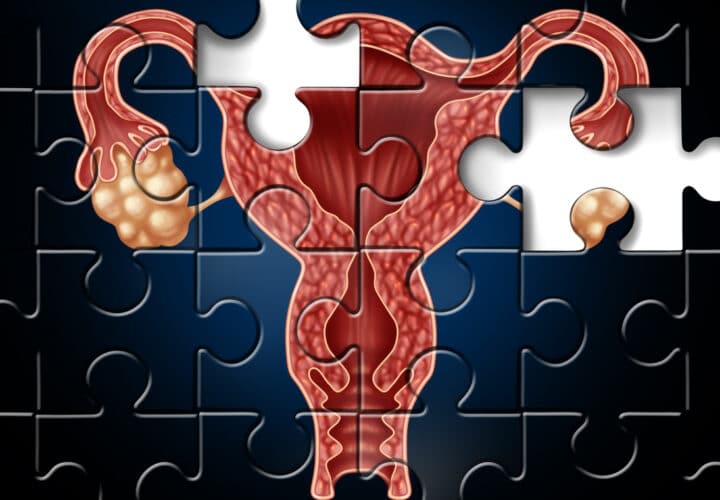Long neglected by science, biological sex differences could help explain why some people are more vulnerable to Alzheimer’s than others — and open the door to new treatments.
Women were historically excluded from medical research. The move was originally intended to keep them safe — but in a way, it did the opposite: It prevented scientists from understanding how and whether drugs work in women, much less what dosages are appropriate. It wasn’t until 1993 that U.S. legislators passed a law requiring federally funded research to include women in research studies.
While scientists have made progress in understanding how sex influences biology and medicine, there are still gaps in our knowledge. Despite being approved by the FDA, the clinical trials for Leqembi and Kisunla did not conduct a sex-specific analysis. Considering the trial findings, it isn’t clear whether the drugs work as well in women.
During Women’s History Month, Science Advances released a special volume of its journal focusing on women’s health science, including brain aging. Despite being more resilient to cognitive aging, women are more than twice as likely as men to develop Alzheimer’s or dementia. The studies in this volume investigate how sex hormones, X chromosomes, and menopause might explain these differences.
“Advancing women’s health is integral to advancing science itself,” wrote Tali Sharot, a section editor of the journal and professor at University College London and MIT. “By prioritizing women’s unique physiological and psychological experiences, we are expanding the frontiers of knowledge in ways that benefit everyone.”
How understanding biological sex differences can improve our understanding and unlock new treatments
A review in this issue of Science Advances summarized what we know so far about women’s health in brain diseases and developed a roadmap for improving our understanding.
Sex differences in the brain can be hard to spot under normal conditions, but these differences become more apparent with menopause, inflammation, or disease.
While both men and women have estrogen, the effects of having different levels of these hormones become apparent when studying Alzheimer’s disease.
Estrogen does a lot more than affect reproductive health — it plays an essential role in helping wire the brain, modulate its immune system, and even interacts with genes that influence disease risk, like ApoE4. However, we know little about the effects of estrogen in men, like whether manipulating this sex hormone could affect Alzheimer’s risk.
The authors argue that carefully assessing how sex-related factors — including chromosomes, estrogen levels, and gender — impact health could help us better understand and treat the biology underlying Alzheimer’s, dementia, stroke, and other neurological conditions.
Does the X chromosome hold the secret to cognitive resilience?
When scientists talk about the silent X, they aren’t referring to a previous romantic partner that’s now muted in their phone. Instead, they’re talking about the second X chromosome.
Everyone inherits two sex chromosomes from their parents (though in rare cases, some people end up with one, three, or more chromosomes). Most males have an X and a Y chromosome, while most females have two copies of the X chromosome.
Receiving double the dose of these genes can be harmful. Protein machinery in the cell tries to silence the second copy of the X chromosome, but some genes are able to remain active. The extra dosage of genes from the second X chromosome could explain some of the biological sex differences in cognitive resilience.
Researchers at UCSF investigated whether genes on the silent X chromosome reactivate in the hippocampus during aging, the brain region responsible for memory. In mice, a gene on the X called Plp1 reactivated. Remarkably, when the researchers examined a similar brain region in postmortem brains of women, they saw the gene reactivated there as well.
Then, they used an experimental technique to boost the levels of this gene in the mice. Having higher levels of Plp1 helped the mice perform better in cognitive tasks.
The study shows why studying the silenced X chromosome in women may be a goldmine for researchers — and expands our understanding of why some women are more resilient to Alzheimer’s. Artificially boosting the levels of these X chromosome genes could one day help us all stay sharper in older age.
Early menopause linked to Alzheimer’s proteins, faster cognitive decline
Could menopause help spark the early stages of Alzheimer’s disease? Researchers examined data from 268 women in the Rush Memory and Aging Project. All the women received annual cognitive tests, reported the timing of their menopause and whether they took hormone therapy, and provided their brains to researchers after they died for further analysis.
Women who experienced early menopause — before the age of 50 — had higher levels of tau tangles. Early menopause was linked to worse synaptic integrity in postmortem brain tissue, a measure of how well brain cells connect and signal each other.
Estrogen, which falls during menopause, helps stabilize these connections in the brain. The women who reported taking hormone therapy shortly after the onset of their menopause had fewer tau tangles and a slower cognitive decline. Like the previous study, there appeared to be no link between hormone therapy and beta-amyloid.
Can hormone therapy slow the buildup of Alzheimer’s proteins?
In the early 2000s, a landmark study examined the risks and benefits of hormone therapy for younger and older women to treat the symptoms of menopause. The trial ended early because the researchers found a negative impact on older women, leading to a drop in the number of people prescribed this therapy.
Now, guidelines only recommend hormone therapy within ten years of menopause onset. Since then, researchers have looked at hormone therapy in the context of brain aging.
“If women start menopausal hormone therapy very close to their age of menopause, it seems to be associated with a neutral or even positive association with Alzheimer’s disease outcomes,” Gillian Coughlan, PhD, an instructor in neurology at Massachusetts General Hospital, told Being Patient. “It seems to have the opposite effect, and it can increase their risk of Alzheimer’s disease.”
To figure out why, Coughlan and her colleagues studied whether hormone therapy affected the levels of beta-amyloid and tau, biomarkers of Alzheimer’s disease, in the brain. Using a PET scan, the researchers measured the levels of these biomarkers in the brains of 146 women between the ages of 51 and 89 twice, about four years apart. Half of the women received estrogen hormone therapy, the other half did not.
The levels of tau grew faster in women over 70 who received hormone therapy compared to those who hadn’t. In younger women, there was no link between hormone therapy and tau levels. Hormone therapy didn’t have a measurable effect on beta-amyloid.
The results are in line with current guidelines for hormone therapy, and the buildup of tau might explain why older women receiving hormone therapy have worse cognitive outcomes. Coughlan said the researchers will continue to track the younger women on menopausal hormone therapy to see if receiving hormone therapy early could keep their tau levels low as they age.





I had a hysterectomy at age 30. My mother had Alzheimer’s. I would like to participate in studies about this. I had hormones therapy for 15+ yrs. Thanks
Thank you for sharing your story with us, Karey. If you’re interested in staying updated on new treatments and clinical trials, feel free to sign up to our quarterly Trials Update newsletter here: https://www.beingpatient.com/bp-trials-updates/?utm_source=organic&utm_medium=social – take care.
There’s a problem with lack of clarity in this article regarding whether the estrogen found to increase Alzheimer’s risk was compounded bioidentical estrogen or something like Premarin. Not all estrogen products are created equal, and this information is crucial when it comes to drawing conclusions about cognitive risk.
Hi! Thanks for bringing this point up. The researchers used a self-reported measure to determine if someone received hormone therapy but didn’t ask them to specify what kind of estrogen replacement they received. The authors wrote that many other studies didn’t have enough power to determine whether hormonal therapy affected amyloid and tau. This study was meant to see if they could see an effect with hormone replacement in general. Per their conclusion, they note that future research is needed to tease out whether there is causation between certain hormonal and non-hormonal forms of estrogen and Alzheimer’s risk.